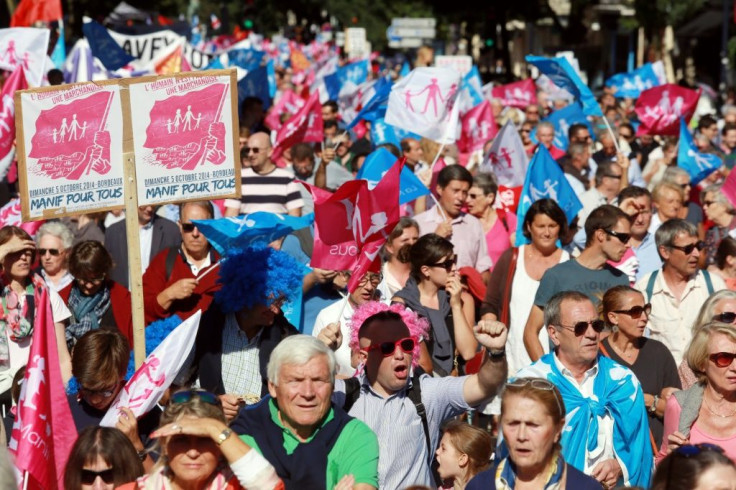French MPs Debate Controversial Bill To Extend IVF To Lesbian Couples

The French parliament debated a draft law Tuesday to extend fertility treatment to lesbian and single women, a move set to spark bitter opposition from conservatives and street protests next month.
President Emmanuel Macron, who acknowledged last week the political risk of the legislation, is mindful of the backlash six years ago against gay marriage, legalised under his Socialist predecessor Francois Hollande.
A coalition of grassroots religious groups, Catholic figures and right-wing political opponents organised mass demonstrations against Hollande and resistance is also stirring to the fertility treatment law.
The legislation, which represents Macron's biggest social reform since coming to power in 2017, is set to be debated in the National Assembly for three weeks starting Tuesday.
"We are going to advance in order to adapt our laws to our society as it is, here and now, and to the French people in their great diversity," Health Minister Agnes Buzyn told parliament.
She said the legislation represented "a chance and even a privilege for our society".
The opposition has focused on how lesbian couples and single women will be able to have children by using donor sperm, making their offspring "fatherless".
Under the law -- for which lawmakers have suggested a total of 2,500 amendments -- a child of a lesbian couple would have the names of the "mother and mother" on its birth certificate instead of the "mother and father".
"The state is going to lie to a child by saying that you are born from two mothers," far-right National Rally leader Marine Le Pen told RTL radio on Tuesday. "The state should not lie on a birth certificate... you can say that you are born from an unknown father."
The conservative Le Figaro newspaper wrote in an editorial Monday the reform "threatens the foundation of our humanity", while the prestigious French Academy of Medicine has raised worries about the potential psychological impact on children.
Around 20 conservative groups have called for a rally in Paris on October 6 against changes they say will "deprive children of their fathers".
Overblown fears?
Under current French law, only heterosexual couples have the right to use medically assisted procreation methods such as in vitro fertilisation, commonly known as IVF.
Lesbians and single women who want to have children often travel to fertility clinics abroad for treatment, a situation they say is discriminatory.
Supporters of the legislation say fears about its impact are overblown -- it is forecast to benefit about 2,000 women annually -- and insist the mothers will be loving and responsible parents.
In her speech to parliament, Buzyn stressed that single parents and homosexual couples with children already existed and it was "hypocritical" to pretend otherwise.
If passed, the law would bring French legislation in line with other European nations such as Britain, Spain, Portugal, Belgium and Scandinavian countries which authorise medically-assisted procreation for all women.
The draft legislation would allow children conceived with donor sperm to learn the donor's identity when they turn 18, ending the anonymity that donors in France have been guaranteed until now.
And it allows women in their mid-30s to freeze their eggs -- a procedure currently available only to women undergoing treatment for conditions that could impact their fertility, such as radiation therapy or chemotherapy for cancer.
© Copyright AFP 2024. All rights reserved.





















